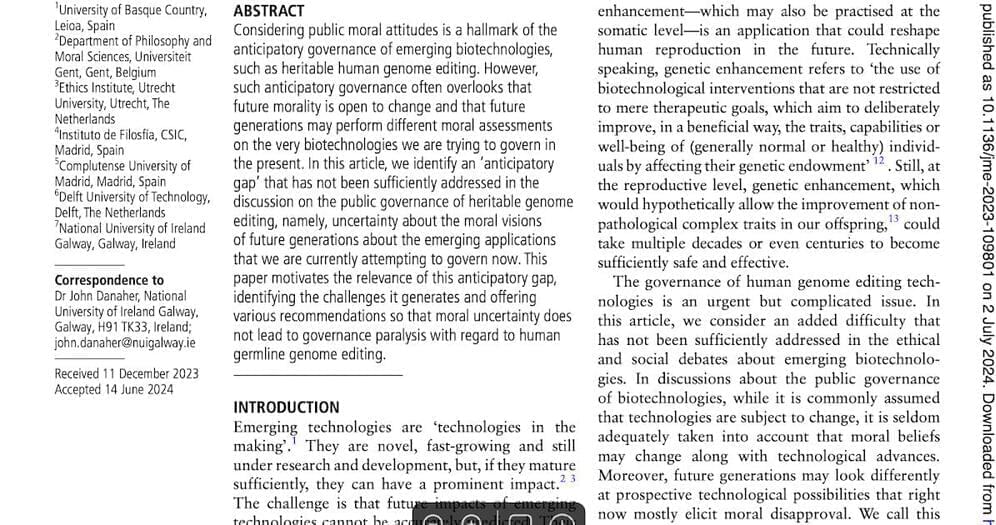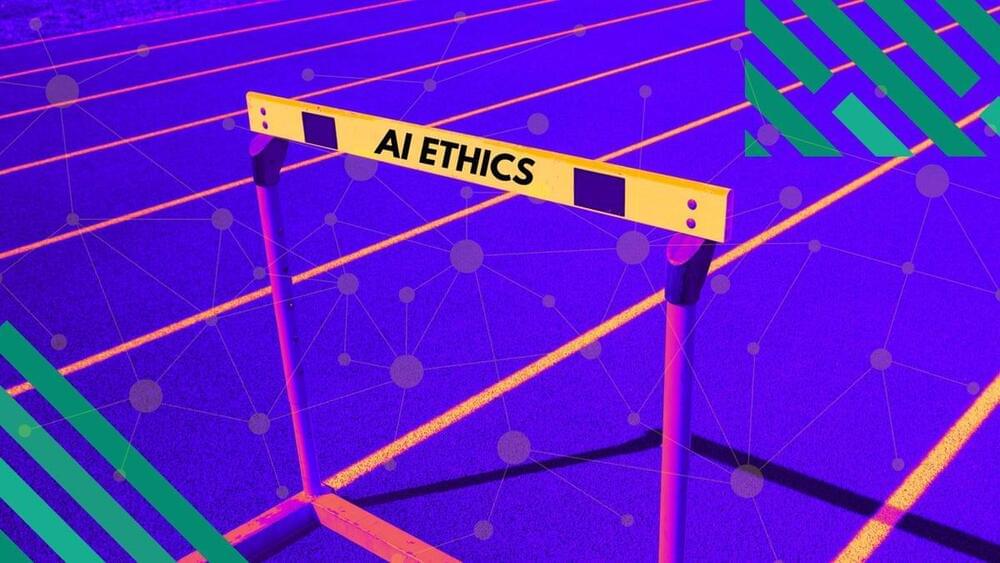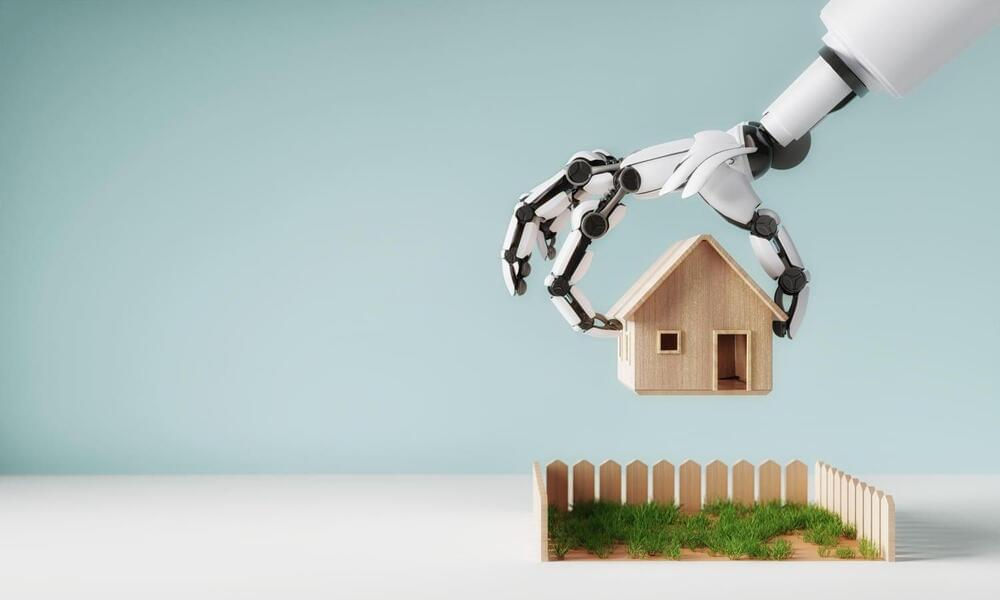The mishandling of robot raises ethical concerns about how we treat lifelike machines.
A livestream showing an influencer mishandling a $70K Unitree G1 humanoid robot sparks debate on ethics and human behavior towards machines.
The mishandling of robot raises ethical concerns about how we treat lifelike machines.
A livestream showing an influencer mishandling a $70K Unitree G1 humanoid robot sparks debate on ethics and human behavior towards machines.

Unlike traditional RLHFs, which only provide feedback after an assessment has been completed, pBCIs capture implicit, real-time information about the user’s cognitive and emotional state throughout the interaction. This allows the AI to access more comprehensive, multidimensional feedback, including intermediate decisions, judgments and thought processes. By observing brain activity when assessing situations, pBCIs provide a more comprehensive understanding of user needs and enable the AI to adapt more effectively and proactively.
By combining RLHF with pBCIs, we can elevate AI alignment to a new level—capturing richer, more meaningful information that enhances AI’s responsiveness, adaptability and effectiveness. This combination, called neuroadaptive RLHF, retains the standard RLHF approach but adds more detailed feedback through pBCIs in an implicit and unobtrusive way. Neuroadaptive RLHF allows us to create AI models that better understand and support the user, saving time and resources while providing a seamless experience.
The integration of RLHF with pBCIs presents both opportunities and challenges. Among the most pressing concerns are privacy and ethics, as pBCIs capture sensitive neural data. Ensuring proper consent, secure storage and ethical use of this data is critical to avoid misuse or breaches of trust.

I was recently a co-author on a paper about anticipatory governance and genome editing. The lead author was Jon Rueda, and the others were Seppe Segers, Jeroen Hopster, Belén Liedo, and Samuela Marchiori. It’s available open access here on the Journal of Medical Ethics website. There is a short (900 word) summary available on the JME blog. Here’s a quick teaser for it:
Transformative emerging technologies pose a governance challenge. Back in 1980, a little-known academic at the University of Aston in the UK, called David Collingridge, identified the dilemma that has come to define this challenge: the control dilemma (also known as the ‘Collingridge Dilemma’). The dilemma states that, for any emerging technology, we face a trade-off between our knowledge of its impact and our ability to control it. Early on, we know little about it, but it is relatively easy to control. Later, as we learn more, it becomes harder to control. This is because technologies tend to diffuse throughout society and become embedded in social processes and institutions. Think about our recent history with smartphones. When Steve Jobs announced the iPhone back in 2007, we didn’t know just how pervasive and all-consuming this device would become. Now we do but it is hard to put the genie back in the bottle (as some would like to do).
The field of anticipatory governance tries to address the control dilemma. It aims to carefully manage the rollout of an emerging technology so as to avoid the problem of losing control just as we learn more about the effects of the technology. Anticipatory governance has become popular in the world of responsible innovation and design. In the field of bioethics, approaches to anticipatory governance often try to anticipate future technical realities, ethical concerns, and incorporate differing public opinion about a technology. But there is a ‘gap’ in current approaches to anticipatory governance.


• Ethics: As AI gets more powerful, we need to address ethics such as bias in algorithms, misuse, privacy and civil liberties.
• AI Regulation: Governments and organizations will need to develop regulations and guidelines for the responsible use of AI in cybersecurity to prevent misuse and ensure accountability.
AI is a game changer in cybersecurity, for both good and bad. While AI gives defenders powerful tools to detect, prevent and respond to threats, it also equips attackers with superpowers to breach defenses. How we use AI for good and to mitigate the bad will determine the future of cybersecurity.
Thank you to today’s sponsors:
Eight Sleep: Head to https://impacttheory.co/eightsleepAugust24 and use code IMPACT to get $350 off your Pod 4 Ultra.
Netsuite: Head to https://impacttheory.co/netsuiteAugust24 for Netsuite’s one-of-a-kind flexible financing program for a few more weeks!
Aura: Secure your digital life with proactive protection for your assets, identity, family, and tech – Go to https://aura.com/impacttheory to start your free two-week trial.
Welcome to Impact Theory, I’m Tom Bilyeu and in today’s episode, Nick Bostrom and I dive into the moral and societal implications of AI as it becomes increasingly advanced.
Nick Bostrom is a leading philosopher, author, and expert on AI here to discuss the future of AI, its challenges, and its profound impact on society, meaning, and our pursuit of happiness.
We touch on treating AI with moral consideration, the potential centralization of power, automation of critical sectors like police and military, and the creation of hyper-stimuli that could impact society profoundly.
We also discuss Nick’s book, Deep Utopia, and what the ideal human life will look like in a future dominated by advanced technology, AI, and biotechnology.
Our conversation navigates through pressing questions about AI aligning with human values, the catastrophic consequences of powerful AI systems, and the need for deeper philosophical and ethical considerations as AI continues to evolve.


There are contexts where human cognitive and emotional intelligence takes precedence over AI, which serves a supporting role in decision-making without overriding human judgment. Here, AI “protects” human cognitive processes from things like bias, heuristic thinking, or decision-making that activates the brain’s reward system and leads to incoherent or skewed results. In the human-first mode, artificial integrity can assist judicial processes by analyzing previous law cases and outcomes, for instance, without substituting a judge’s moral and ethical reasoning. For this to work well, the AI system would also have to show how it arrives at different conclusions and recommendations, considering any cultural context or values that apply differently across different regions or legal systems.
4 – Fusion Mode:
Artificial integrity in this mode is a synergy between human intelligence and AI capabilities combining the best of both worlds. Autonomous vehicles operating in Fusion Mode would have AI managing the vehicle’s operations, such as speed, navigation, and obstacle avoidance, while human oversight, potentially through emerging technologies like Brain-Computer Interfaces (BCIs), would offer real-time input on complex ethical dilemmas. For instance, in unavoidable crash situations, a BCI could enable direct communication between the human brain and AI, allowing ethical decision-making to occur in real-time, and blending AI’s precision with human moral reasoning. These kinds of advanced integrations between humans and machines will require artificial integrity at the highest level of maturity: artificial integrity would ensure not only technical excellence but ethical robustness, to guard against any exploitation or manipulation of neural data as it prioritizes human safety and autonomy.

“An Unscientific American” discusses the resignation of Laura Helmuth from her position as editor-in-chief at Scientific American. The author, Michael Shermer, argues that her departure exemplifies the risks of blending facts with ideology in scientific communication.
Helmuth faced backlash after posting controversial remarks on social media regarding political views, which led to public criticism and her eventual resignation. Shermer reflects on how the magazine’s editorial direction has shifted towards progressive ideology, suggesting this has compromised its scientific integrity. He notes that had Helmuth made disparaging comments about liberal viewpoints, her outcome would likely have been more severe.
The article critiques Scientific American for endorsing positions on gender and race that Shermer sees as ideologically driven rather than based on scientific evidence. He expresses concern that such ideological capture within scientific publications can distort facts and undermine credibility.
For more details, you can read the full article here.
About the Author.
Michael Shermer is a prominent science writer and the founder of the Skeptics Society. He is known for his work promoting scientific skepticism and questioning pseudoscience. Shermer is also the author of several books on belief, morality, and the nature of science, including The Believing Brain and The Moral Arc.
https://quillette.com/2024/11/21/an-unscientific-american-sc…signation/
–
Quillette is an Australian-based online magazine that focuses on long-form analysis and cultural commentary. It is politically non-partisan, but relies on reason, science, and humanism as its guiding values.
Quillette was founded in 2015 by Australian writer Claire Lehmann. It is a platform for free thought and a space for open discussion and debate on a wide range of topics, including politics, culture, science, and technology.